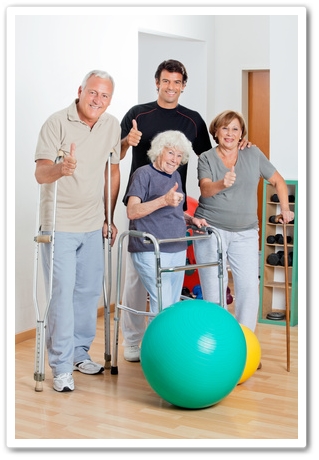 Here are important tips on how to get the most benefit out of the use of assisted walking devices:
Here are important tips on how to get the most benefit out of the use of assisted walking devices:
Crutches
Crutches are used by individuals who need stability and support in the lower body. When using crutches, ensure that they are of the right length and they comfortably sit under the armpit. Sufficient upper body strength is important for balance. Your physical therapist will identify the best walking pattern for you, and will train you to use the crutch correctly.
Walkers
Walkers are generally used by individuals with balance impairments. Elderly patients often use walkers to reduce the risk of falls. The key to using a walker is to ensure that it is of the right height and that the patient does not stoop down too much to support himself or herself. Most walkers have an adjustable height option. Some walkers allow adjustments for patients to climb stairs as well. The key is to hold firmly and to lean forward slightly while using a walker.
Cane
A cane also helps individuals struggling with balance. A 'quad cane' has four anchor points and provides a high level of stability. In general, the cane is held on the dominant, stronger arm to support the opposite side, but your physical therapist will make that determination. A cane is generally used in conjunction with the movement of the opposite affected leg.
Assistive devices serve many purposes, and are not restricted to locomotion alone. They assist the individual to perform day-to-day activities in an efficient manner. For example, an assistive device called a grabber helps patients pick up any objects on the floor. In the bathrooms, a grab bar on the wall can be helpful in assisting patients to stand up from a seated position.